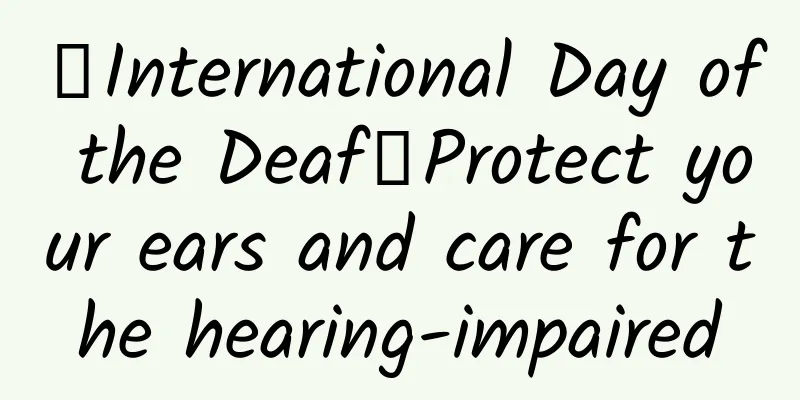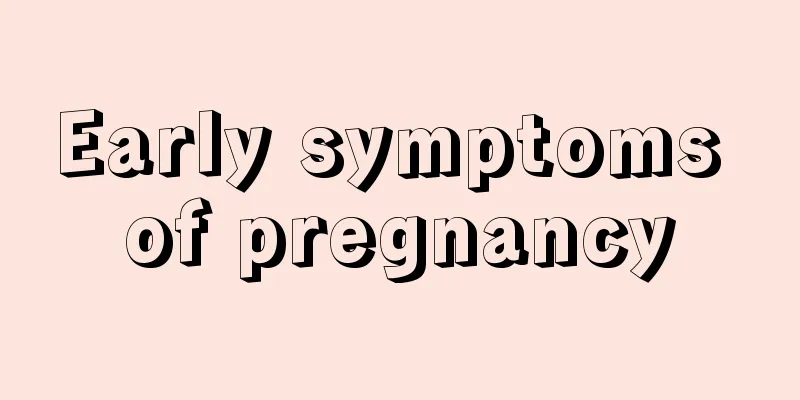【International Day of the Deaf】Protect your ears and care for the hearing-impaired

|
September 25th this year is the 2022 International Day of the Deaf. Since 1958, the fourth Sunday of September every year has become the International Day of the Deaf. The World Federation of the Deaf hopes that by establishing this holiday, society will pay more attention to the deaf and improve their social status.
Factors that cause deafness 01 Genetic factors Hereditary deafness is congenital and mostly difficult to change, but if it can be detected and treated early after birth, especially with early cochlear implant surgery, it will be possible for the child to study, socialize, get married, have children, and have work opportunities like normal children. 02 Environmental factors Deafness caused by environmental factors is mostly acquired and can be prevented. In daily life, we must protect our ears and avoid acquired hearing loss. 03 Other unknown factors Viral infection, temporal bone fracture, damage to the auditory nerve center in the brain, and direct damage to the auditory center can also cause deafness. Ways to prevent hearing loss 1Avoid drug poisoning Aminoglycosides, salicylates, anti-tumor drugs, and alcohol drugs. Before using these drugs, you must follow the doctor's advice and never take them randomly. 2. Prevent virus infection Infants and young children should receive various vaccinations in a timely manner and avoid crowded public places during epidemic seasons. 3. Reduce noise To stay away from noise, you can wear noise-canceling headphones; when choosing a place to live, stay away from traffic arteries, KTVs and other places with high-intensity noise. 4. Prevent ear injuries Being hit on the ears or the explosion sound produced by firecrackers can cause the eardrum to rupture or perforate, directly leading to hearing loss. 5. Eat more fruits and vegetables A survey shows that eating more fruits and vegetables rich in vitamin C, vitamin E, and beta-carotene, such as citrus fruits (including oranges, grapefruits, and tangerines), strawberries, bell peppers, tomatoes, broccoli, potatoes, sprouts, etc., can help prevent the occurrence of noise-induced hearing loss. 6. Correct ear cleaning Do not use hard tools such as small wooden sticks or hairpins to pick your ears, as this may damage the ear canal skin or eardrum, causing infection and affecting hearing. Do not pick your ears too often, as frequent ear picking can easily damage the ear canal. 2-3 times a month is enough. 7. Actively treat other diseases Diseases such as colds, rhinitis, sinusitis, and deviated nasal septum can affect nasal ventilation, thereby affecting the ventilation of the Eustachian tube, making it easy for bacteria in the mucus to enter the ear cavity, causing otitis media and affecting hearing. 8. Improve body resistance Adjust your daily routine, strengthen exercise, and improve your body's resistance. In addition, it is also important to maintain a good attitude. Excessive emotional fluctuations can easily affect poor blood circulation in the ears, causing inner ear nerves to lack oxygen and lead to sudden deafness. On this special day, let us care for the hearing impaired and make their lives warmer. The popular science content of this platform has been funded by the China Association for Science and Technology's Science Popularization Department's 2022 National Science Literacy Action Project "National Society Science Popularization Capacity Improvement Project-Rehabilitation Science Popularization Service Capacity Improvement Action Plan" |
<<: Japanese social network GREE – data infographic
>>: Popular Science Illustrations | Unlocking the Age "Code" Hidden in Bones
Recommend
How many days does it usually take for a woman’s lochia to clear up after she’s given birth?
After a woman gives birth, some of the decidua on...
Requirements and postoperative care for abortion and IUD insertion
It is medically possible to have an abortion and ...
Can I get pregnant if I have vaginitis?
If people have vaginitis, they should keep their ...
What are the preparations before induction of labor?
Some female friends will choose to have an induce...
Can traditional Chinese medicine cure fallopian tube obstruction?
For gynecological infertility, the treatment meth...
How long do the two bars last during ovulation?
During the ovulation period, an early pregnancy t...
Popular Science Debunks Rumors | Osteoporosis is an old age disease, does it only occur when you are old?
Rumors debunked: Osteoporosis is not exclusive to...
Top 10 Instant Messaging Apps of 2013 – Infographic
IM has never left our lives. From QQ to WeChat, t...
Red spots on the body during pregnancy
Many women will develop some red spots on their b...
There is dirt in the menstrual blood
Because if the body has corresponding gynecologic...
What are the dangers of eating overnight food for pregnant women?
In people's daily lives, leftovers are inevit...
Will low progesterone cause the baby to be deformed?
Will low progesterone during pregnancy lead to fe...
What are the weight loss exercises suitable for women?
Because more and more people want to lose weight,...
What are the signs of a woman's strongest sexuality?
A woman's sexual desire is related to many fa...









